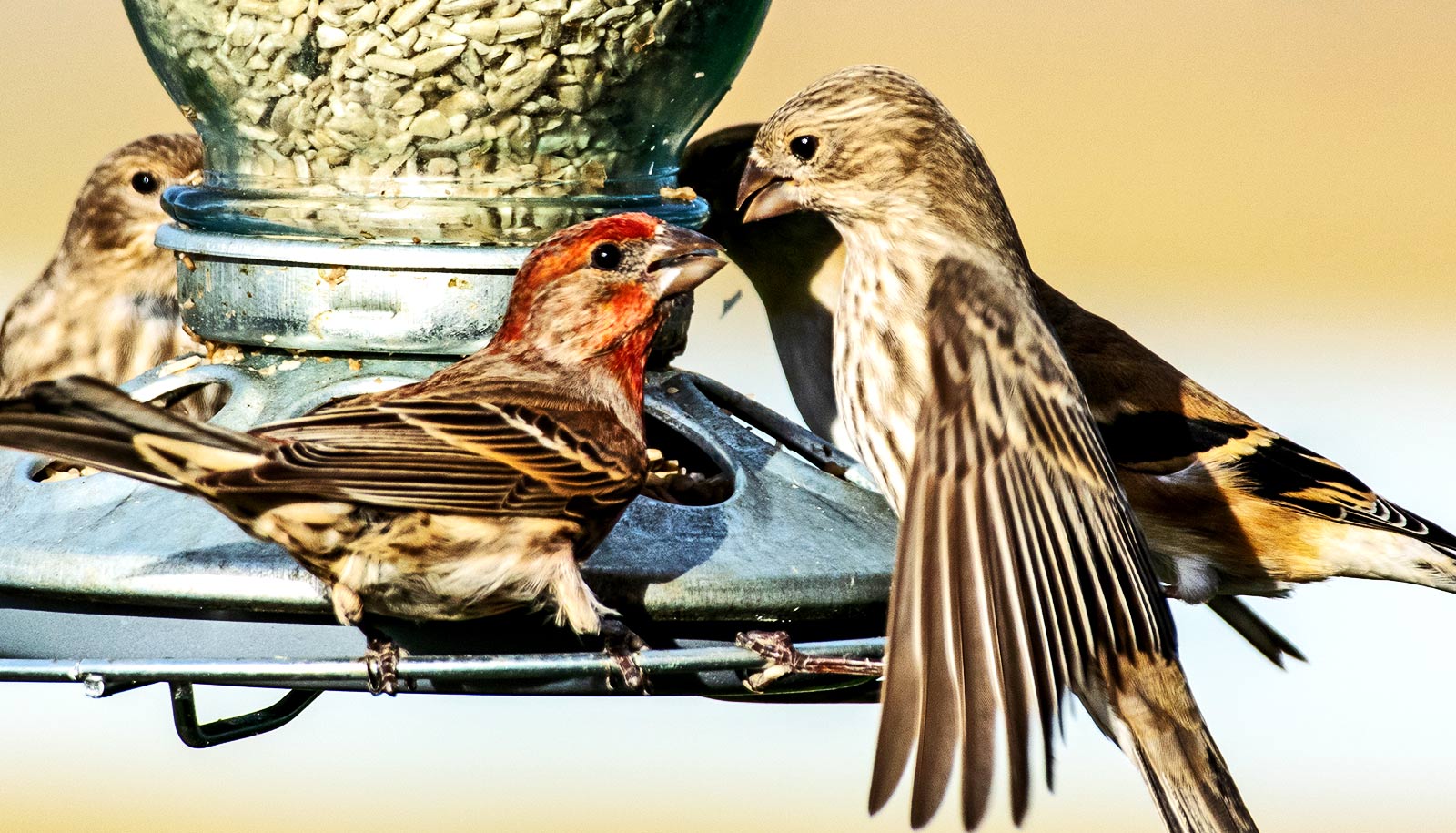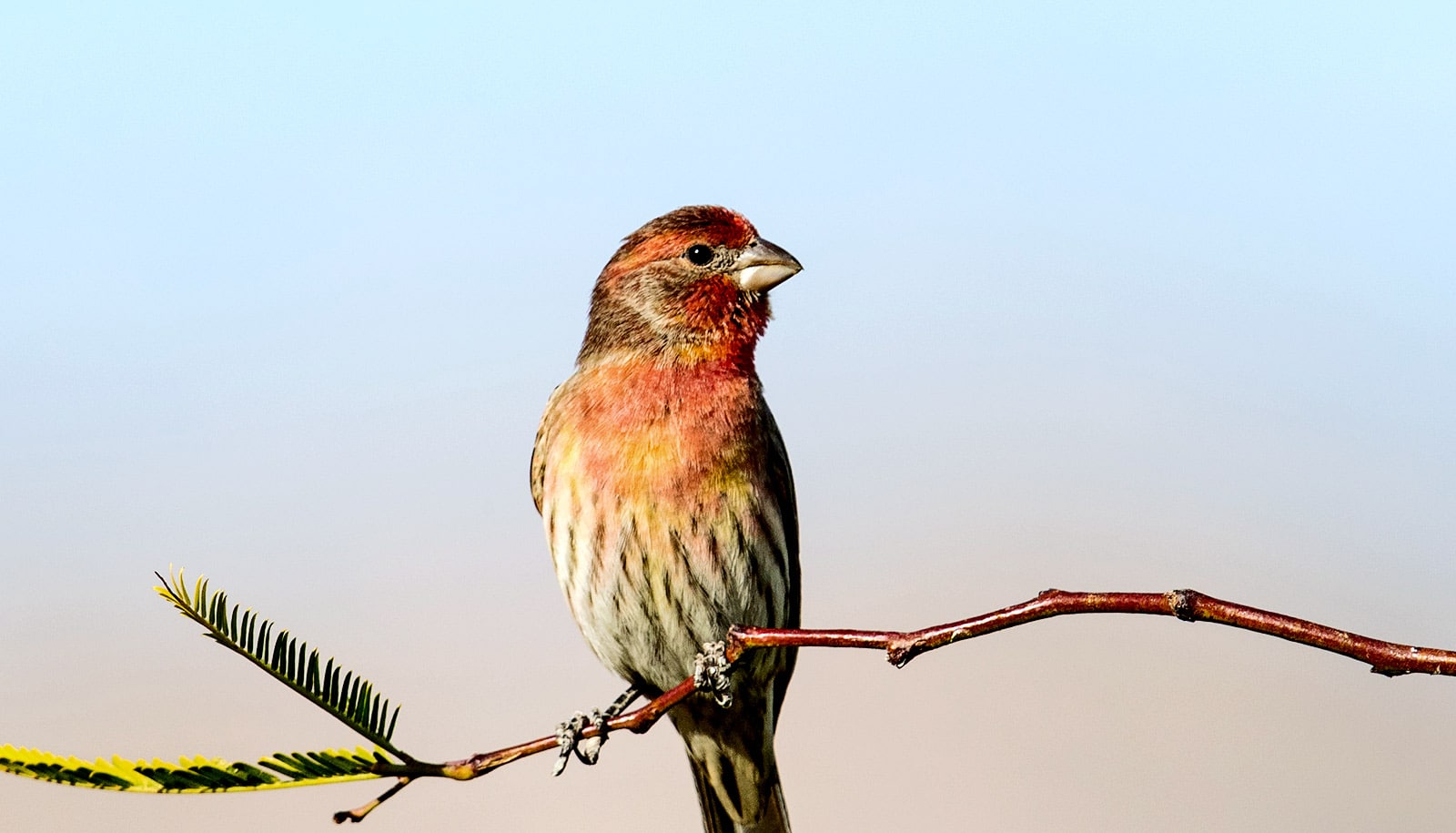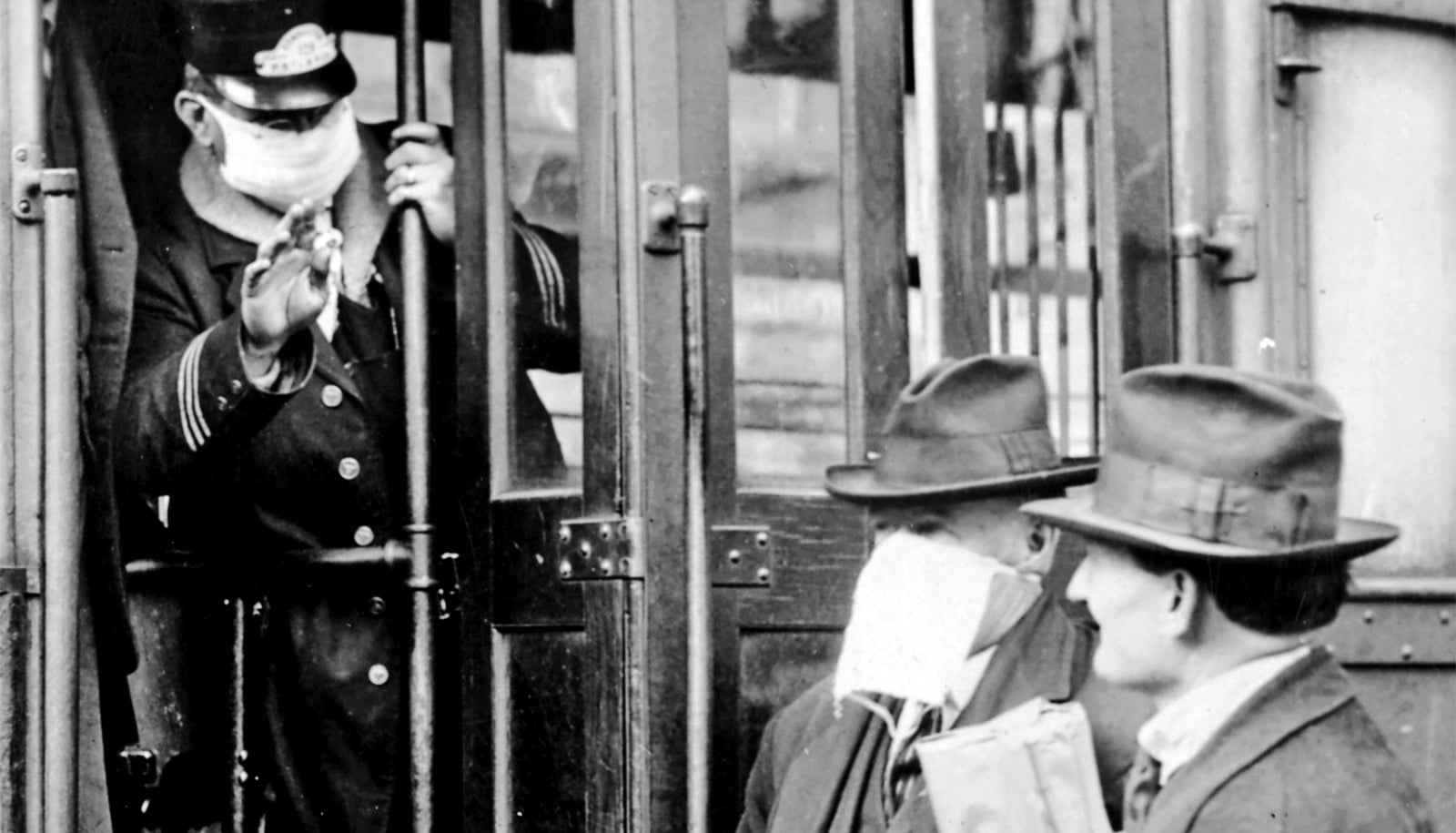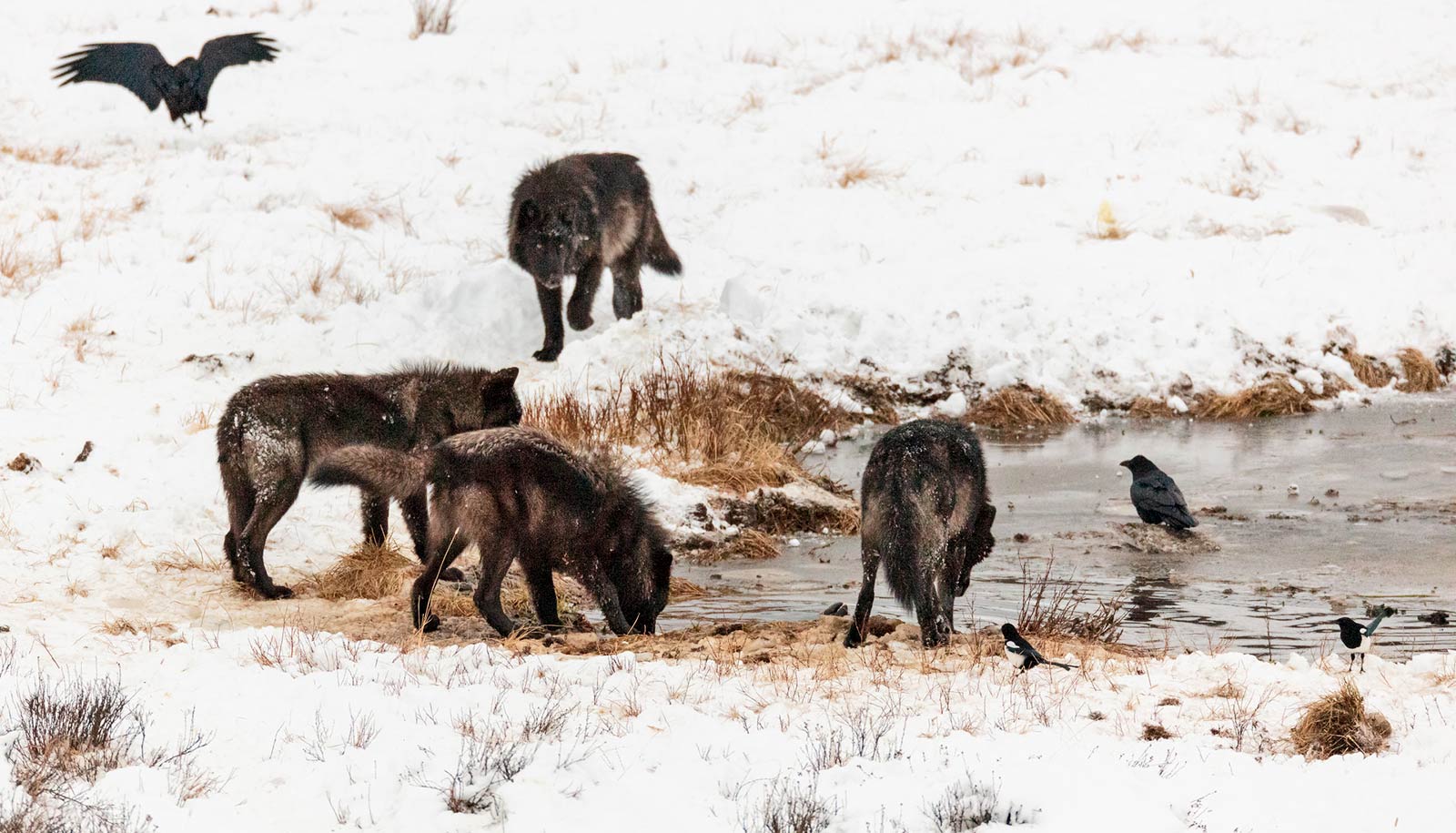Unlike other social animals who passively or actively isolate themselves when sick, house finches gravitates toward healthy flock mates when they are sick, even more so than healthy birds do.
Social distancing when sick has become second nature to many of us in the past few years, but the new research shows some appear to take a different approach.
In particular, the study, published in the journal Ecology and Evolution, found sick finches want to eat together with their flock.
“The recent pandemic years of isolating and quarantining have shown us that social distancing to avoid getting sick can also have detrimental aspects for group living animals,” says Marissa Langager, a PhD student in the biological sciences department in the College of Science at Virginia Tech, whose research interests are social behavior and disease ecology.
“The costs of going solo may be particularly high for sick animals especially if they rely on their healthy groupmates to help them find food or avoid predators. Ultimately, this might be the reason that finches become even more social when sick, inadvertently putting their healthy flock mates at risk because bird feeders, where house finches like to gather to feed, are a major means of spreading disease.”
Few studies prior to this one directly examined how acute infections caused by contagious pathogens influence social preferences, but instead focused more generally on why some animals evolve to become social in the first place and how social living benefits them.
This research, Langager says, sheds light on how social animals behave when sick and can inform other studies in the field.
“Since all social animals—including humans—get sick, it is important to understand the costs and benefits of group living more broadly,” she says. “We may be able to use this information to predict disease spread in social animals. And it can also help us understand when and where we might expect healthy animals to evolve the ability to avoid sick groupmates who remain in the group at risk to their healthy groupmates.”
Because of the unexpected results of the study, Langager wanted to know more about what exactly might be leading the sick finches to increased preferences for eating with a social group and is exploring this further in her doctoral dissertation.
“Maintaining social relationships can take a lot of energy for the birds I study. So if these birds are putting forth the energy to keep hanging around their social groups even when they are sick, it is most likely because of the benefit to them,” she says.
Langager has devised several experiments that will test whether group membership affects a sick bird’s behavior by changing how it responds to a predator and affecting its ability to successfully forage for food.
Lanager’s advisor, Daana Hawley, and James S. Adelman of the University of Memphis are coauthors of the study.
Source: Virginia Tech



